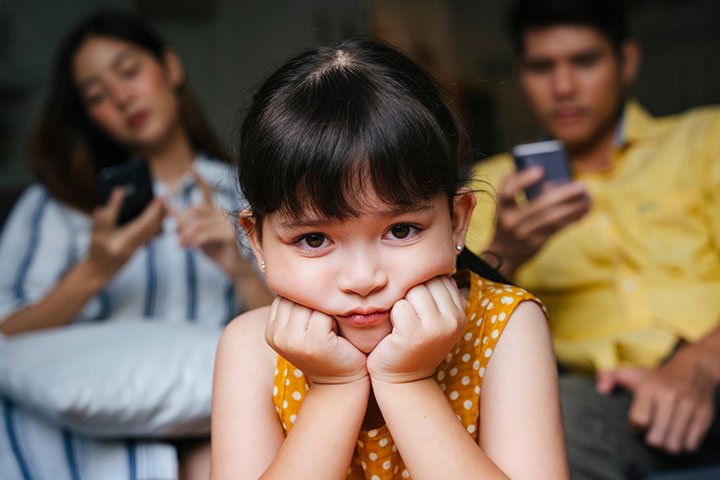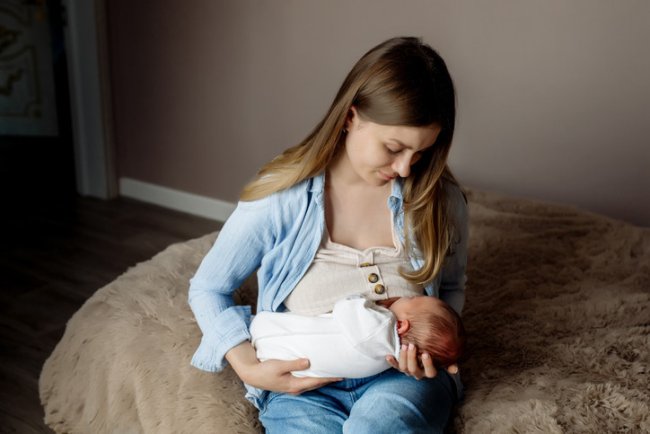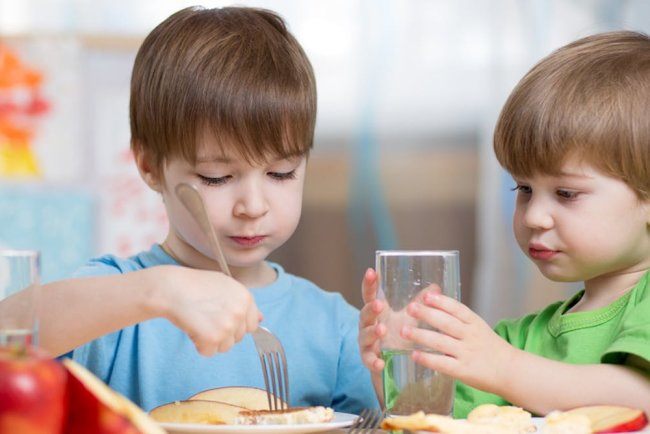Uninvolved Parenting: Hands-Off Approach and Its Consequences
Discover the impact of Uninvolved Parenting: Hands-Off Approach and Its Consequences. Dive into the consequences, FAQs, and expert insights. Explore the hands-off approach and its implications on child development.

Introduction
Parents have huge responsibilities in shaping their child's development and future. While being a parent is tough, most strive to be actively involved in their kids' lives through guidance, support and nurturing care. However, an uninvolved or "hands-off" approach to parenting can negatively impact child well-being.
In this article, we will explore what uninvolved parenting looks like, potential causes for this style of parenting, and research on consequences it can have on children. My goal is to have an informative yet thoughtful discussion on this complex issue. Parenting is challenging and there is no one-size-fits-all approach, but being aware of risks with uninvolvement can help all parents strive to support children’s wellbeing.
What is Uninvolved Parenting?
Uninvolved parenting, also called detached, disengaged or hands-off parenting, refers to a style where parents maintain a physical and emotional distance from their children. It is characterized by a lack of interaction, communication, caretaking responsibilities and investment in the child's life.
Some key aspects of uninvolved parenting include:
- Not spending quality one-on-one time with the child through activities, conversations or sharing daily routines. The parent may be physically present but not actively engaged.
- Not taking responsibility for ensuring the child's basic needs are met, such as providing meals, transportation, medical care or help with schoolwork/homework.
- Not setting rules or enforcing consequences for behavior. The parent takes a completely laissez-faire approach with no controls or boundaries.
- Lack of praise, encouragement or emotional support. The parent does not engage in nurturing behaviors or show interest in the child's experiences, feelings or progress.
- Harsh or neglectful treatment if they do interact. The parent may be impatient, hostile, dismissive or even physically/emotionally abusive at times.
- Unavailability to the child on an emotional level. The child perceives the parent as indifferent, rejecting or unavailable to listen without judgment.
Of course, all parents vary in how hands-on they are at different stages. My purpose here is not to judge but rather understand impacts of more extreme disengagement from a child's life which leaves their needs and wellbeing at risk.
Potential Causes of Uninvolved Parenting
Now that we have an idea of what uninvolved parenting looks like in a family, let’s explore some potential underlying reasons why a parent may adopt this approach:
- Mental health issues: A parent dealing with untreated depression, anxiety or other mental illnesses may struggle to muster energy or find motivation to interact with their child. Substance abuse can also distance a parent.
- Stressful life circumstances: Juggling work, financial pressures or a hectic schedule may leave parents feeling overwhelmed with limited bandwidth to be hands-on. Relationship issues, single parenthood or trauma history add more stress.
- Lack of parenting role models: Parents who grew up with uninvolved caregivers themselves may repeat what feels familiar, even if unintentional and undesired. They lacked good examples of hands-on parenting.
- Unrealistic expectations of children: Some parents view development of independence and self-sufficiency as starting at a very young age. But children still need consistent guidance and nurturing during childhood years.
- Childhood deprivation trauma: For parents who experienced trauma like abuse, neglect or painful estrangement from their own caregivers, close attachment may feel scary. Pushing children away is an unconscious defense.
- Weak parenting skills: Even wanting closeness, absent effective emotion coaching skills, patience, limit-setting techniques etc parents become disengaged out of frustration with challenging behaviors.
- Prioritizing other demands: Work, friendships, hobbies or self-care activities take priority over active listening, play time or other investments needed by growing children and youth.
Of course, not all causes result from conscious choice. Mental health, life stress and trauma responses are complex, valid struggles deserving compassion. The goal here is simply to better understand factors which might unintentionally distance parents from being fully present and engaged caretakers.
Potential Consequences of Uninvolved Parenting on Children
A wealth of research has examined potential impacts seen in children experiencing uninvolved or detached parenting styles. Here are some key findings on consequences this approach can have:
Emotional/behavioral issues
- Anxiety, depression, low self-esteem due to lack of parental acceptance, love and security.
- Attention difficulties and hyperactivity due to lack of structure, limits and routine.
- Aggression, acting out or defiance seeking negative attention when positive is absent.
- Withdrawn, shy behaviors if the child internalizes rejection instead of externalizing emotions.
Attachment/relationship issues
- Insecure attachment patterns form when a child does not experience consistent affection/caretaking as an infant/toddler. This primes future relationships and coping skills.
- Difficulty expressing or recognizing emotions due to never learning that skill from parents as emotional role models.
- Trouble forming fulfilling friendships or maintaining healthy adult partnerships due to attachment wounds.
Academic/developmental problems
- Lower academic achievement due to lack of parental involvement in school, encouragement for learning activities at home and academic goal-setting during formative years.
- Developmental delays if basic needs like nutrition, medical care, socio-emotional/language skills are inconsistently met by disinterested parents.
Risk behaviors/trouble with authority
- Earlier experimentation with substances, risky sexual activities or delinquency seeking other external validation and coping when problems arise.
- Higher risk of teenage pregnancy/parenthood for similar psychological reasons.
- Oppositional defiance towards authority figures at school or in communities due to unmet yearning for parental structure, discipline and respect.
Long-term adjustment issues
- Low self-efficacy due to always receiving messages of not being worthy of time, protection and care can lead to risk of adult depression or anxiety.
- Relationship patterns may cause instability in areas like education, careers or finances without learning critical life skills from attentive parents.
- Physical health problems are more likely due to lack of a parental role model promoting healthy behaviors.
Of course, every child is unique and some may be more resilient than others if other factors protect them. And consequences are not guaranteed, as children can overcome early challenges. But research consistently links uninvolved parenting to risks across developmental domains when left unaddressed.

The Goal of Thoughtful Discussion
In covering this complex topic, my aim has not been to accuse or attack any parents, but rather have an informative discussion. Parenting is demanding under the best of circumstances and we all fall short at times. Challenges outside a caregiver's control like mental illness, trauma history or lack of support magnify difficulties exponentially.
Ultimately, being aware of passive parenting's potential downsides can help all families strive to do better where able. And for those really struggling, it increases understanding to hopefully reduce shame and instead encourage safe, confidential help-seeking. All children deserve nurturing care but not all caretakers have the privilege of optimal circumstances themselves.
With compassion for each scenario's uniqueness, my hope is that open dialogue empowers parents to best support thriving development. No one has a perfect approach, but keeping lines of communication open and making adjustments with patience, a nonjudgmental friend or services can support families facing limitations. Focusing on potential rather than fault finds solutions.
Tips for More Engaged, Involved Parenting
For any parents wanting to foster closer relationships and reduce risks uninvolved parenting may pose, here are some suggestions for creating more meaningful connection and involvement:
- Set aside 15-20 minutes daily for undivided one-on-one time like talking during dinner, reading together or playing a game without distractions.
- Attend school/extracurricular activities when possible to show support and stay informed firsthand about the child's world.
- Give thoughtful praise and acknowledgment for efforts and accomplishments to boost confidence and motivation.
- Set consistent household rules addressing safety, respect and responsibilities with open communication about rationale.
- Prepare healthy meals together when feasible for quality time, modeling nutrition and basic life skills.
- Ask open-ended questions about feelings, interests, opinions and friends to facilitate emotional learning and intimacy.
- Get on child's level, make eye contact and listen actively without judgment when they need to confide worries, thoughts or feelings.
- Provide appropriate structure, routine and discipline in a kind yet firm manner to create security through predictability.
- Carve out time on weekends for family activities outside the home like hiking, museums, volunteering - experiences to bond over shared memories.
- Consult teachers, counselors or pediatricians if concerns arise about development, behavior or mental wellbeing to get professional perspective and guidance.
- Prioritize self-care and utilize your own social supports as needed so you have energy reserves for attentive parenting. It takes a village!
FAQs
What's Your Reaction?




















